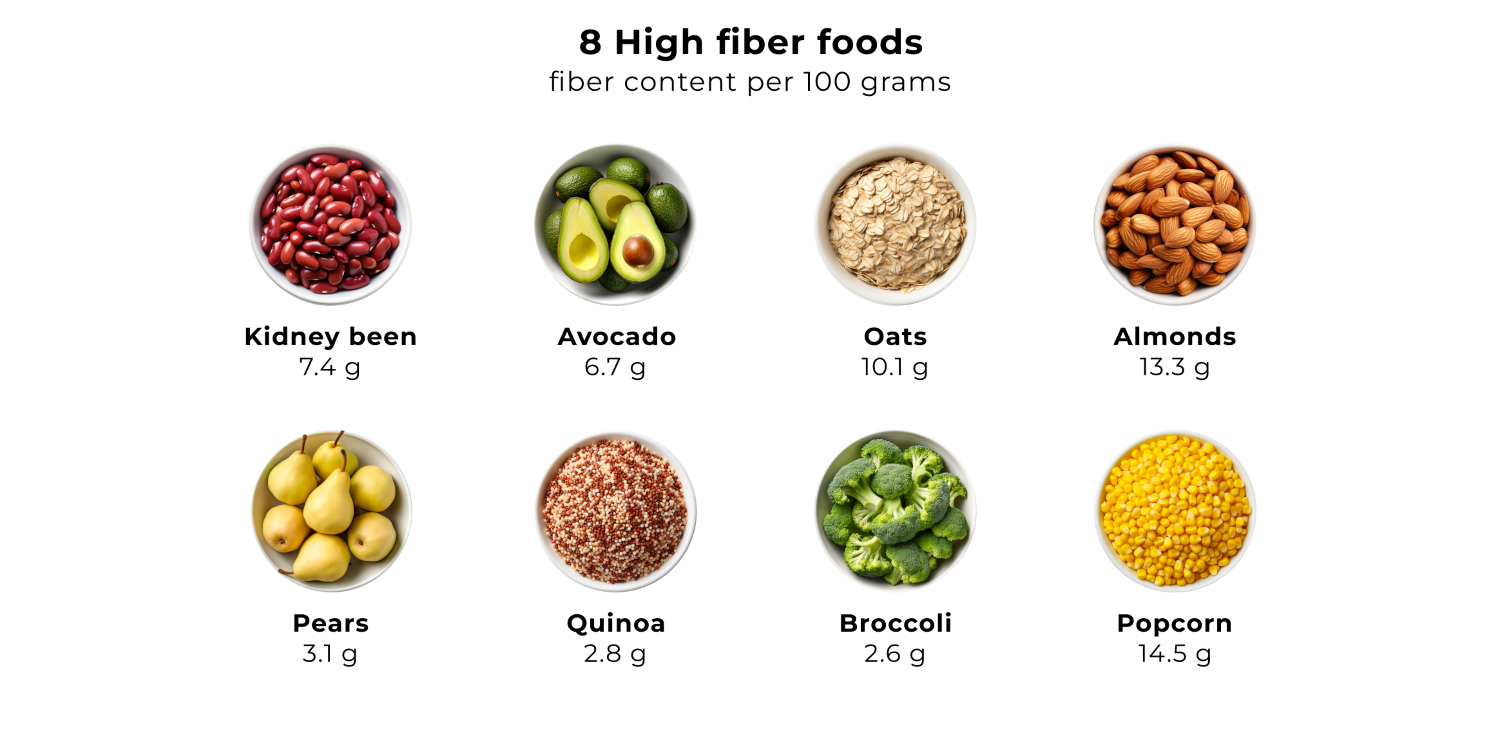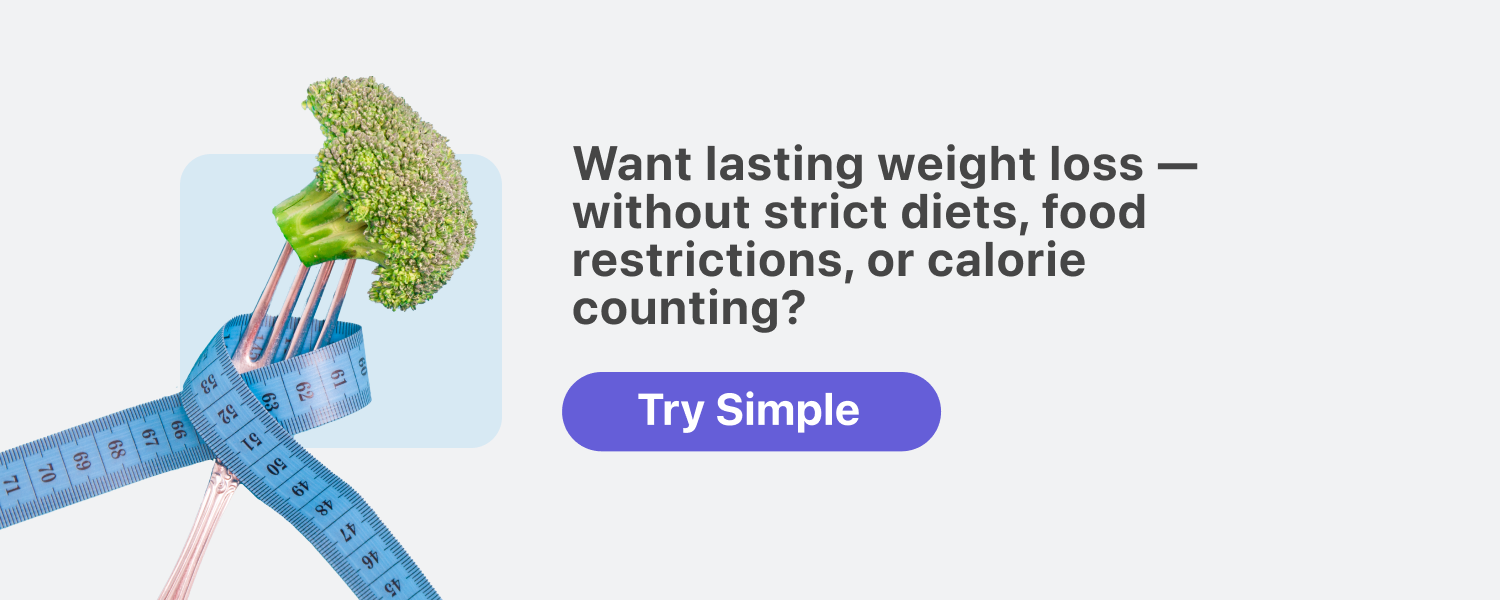The link between intermittent fasting and constipation

Possibly the only thing worse than getting that urge — the one that has you clutching at your stomach and running for the bathroom at an inopportune time — is when that urge hasn’t come knocking for days, and you feel like your gut is a tight, uncomfortable coil that won’t unwind.

Since modifications to what and when you eat can affect your bowel movements, it’s natural to be nervous that a new eating routine could also mean a new bathroom routine. And when it comes to intermittent fasting, constipation may sound like a particularly likely follower since less food means fewer opportunities to get what your body needs to function … right?
Before we have you running for the hills, intermittent fasting and constipation may occur in some cases, but they’re not frequently seen together, and constipation should always be treated seriously. Here’s what you need to know about when and why they might link up.
What is constipation?
Before we give you the scoop on fasting and constipation, let’s clarify what we mean by the latter.
By doctor definition, constipation involves having fewer than three bowel movements per week.[1] However, everyone’s version of being regular varies, so you may feel constipated if you simply poop less than you normally do.
What are the signs and symptoms of constipation?
In addition to feeling like you need to poop but can’t, you may feel constipated if you experience some of the following symptoms:[2]
- hard, dry, or lumpy stool;
- stomach cramps, gas, or bloating;
- pain or difficulty during pooping; and
- feeling like you haven’t fully flushed out your system even when you do have a bowel movement.
How does intermittent fasting affect constipation?

So, what’s the low-down on bowel movements during fasting?
Does fasting cause constipation? Can intermittent fasting cause constipation?
Or does fasting help constipation — does fasting make you poop, or do you poop a lot during intermittent fasting?
If the idea of being backed up scares the figurative crap out of you, don’t worry: as far as intermittent fasting side effects go, constipation isn’t a common one.
But like any two people who aren’t naturally compatible, there are a few situations in which intermittent fasting and constipation can join forces in disrupting your bowel movements. We’ve outlined those below.
Need more general background on intermittent fasting first? Whether you’re looking for a crash course on intermittent fasting for beginners and the pros and cons of intermittent fasting, or you want to dive deeper into the science behind questions like “Does intermittent fasting slow metabolism?” and “Does intermittent fasting work for weight loss?” we’re here to scratch that itch. Once you’re up to speed — and you’ve checked with your healthcare provider to make sure fasting is safe for you to try — you can take our Simple quiz to get personalized advice and action plans straight from the experts.
Eating less
You know how discombobulated you can feel with jet lag? Much like time zone changes affect your sleep patterns, what and when you eat affects your digestion. That means any changes in your diet can influence your bowel movements. With intermittent fasting, you’re eating not only over fewer hours (which can impact when you need the bathroom) but also likely less food in general (which can also impact how often you need the bathroom). Just because you may poop less during intermittent fasting doesn’t necessarily mean you’re constipated, but it could be the case.
Not getting enough water
When you’re eating less — and less often — you’re also at risk of not getting enough water during both your eating and fasting windows. Water is important for loads of critical bodily functions, but particularly for keeping things moving internally and getting rid of waste.[3,4]
Not getting enough fiber
Another potential impact of eating less frequently is not meeting your daily quota for dietary fiber. Fiber is a form of carbohydrate most commonly found in plant-based foods (like fruits, vegetables, and whole grains). It can’t be broken down in your body and instead is fermented in your colon, which is why it plays a crucial role in keeping your gut healthy. Less fiber intake can mean less intestinal regulation and more constipation.[5]

Treating constipation
While constipation isn’t a common side effect of intermittent fasting, stuff happens (or, in this case, it doesn’t).
So, what helps constipation when fasting?
Common strategies for getting your bathroom schedule back on track include:[6]
- drinking more water;
- having more frequent meals;
- eating more high-fiber foods (like fruits, veggies, and whole grains);
- limiting highly processed foods like pastries, chips, and commercial baked goods;
- engaging in regular physical activity (exercise may affect digestive motility and transit);[7] and
- not putting off the urge to go (when nature calls, don’t send it to voicemail!).
When to consult a doctor
While constipation itself isn’t considered a disease, it can be a symptom of another medical problem. Some people — like those who take certain medications [2] — may also be more at risk for constipation.
If you’re experiencing constipation for more than two or three days, or it becomes unbearable, you should speak to your healthcare provider. You should also stop fasting until you receive medical advice and resolve your constipation.
Remember, there’s no such thing as a universal “normal.” If you don’t fit the basic definition of constipation but something still feels off, reach out to your doctor for support.
Simple’s tips on intermittent fasting for constipation
Does intermittent fasting cause constipation? It may, but it’s not common.
Does fasting help with constipation? It can do that, too, as long as you focus on having frequent meals rich in fiber during your eating window and have plenty of water throughout both your fasting and eating windows.
If you’re feeling more clogged than your toilet, there are a few simple shifts you can make to your intermittent fasting schedule to shake things up — and hopefully out.
As with any changes to your eating routine, though, double-check with your doctor first to make sure no switch-ups will inadvertently put your health at risk.
1. Eat smaller, more frequent meals
It’s a lot easier for your digestive system to get overwhelmed if you throw a lot at it at once. Eating smaller, more frequent meals may give your digestive tract more of a chance to process your intake and avoid any bottlenecks. You can also take our Simple quiz to get an idea of what fasting schedule might be best suited to you and your lifestyle.
2. Stay hydrated
One of the most common intermittent fasting mistakes we see is not drinking enough water, that all-important body system regulator. When you’re eating less, you’re missing chances to get additional water through food sources, so you need to be extra mindful about getting enough water intake in liquid form during both your fasting and eating windows. If you’re not a big plain water drinker, you can infuse it with fruits, herbs, or spices without breaking your fast.
3. Get plenty of fiber
Dietary fiber can be used in both treating and preventing constipation,[6] and one large cross-sectional study found that eating more fiber-rich foods like fruits, veggies, whole grains, and beans was associated with decreased risk of constipation.[8] Nuts and seeds are also a good source of fiber, unsaturated fatty acids, and antioxidants that support better gut health.[9] Plus, as far as what to eat during intermittent fasting goes, all these foods are on our list of health-promoting foods that maximize your fasting results, so it’s a win-win! We recommend aiming for 19–38 grams per day,[10] but if you’re not used to eating fiber, raise your intake gradually. Don’t forget to consult with your healthcare provider or a registered dietitian for more ways to do this.

4. Cut back on high-sodium foods
Salt is an essential nutrient, but having too much of it may dehydrate you and stiffen up your stool,[8] as well as increase your risk of cardiovascular disease.[11] If you’re eating a lot of salty, processed foods (like deli meats, fast food, chips, and certain sauces, like soy sauce), it may be helpful to cut down on portions or replace them with low-sodium alternatives.
5. Have a morning cup of coffee
Caffeine and the compounds in coffee are like an acid bomb to your stomach,[12] so while it may serve as an irritant if you have inflammatory bowel disease, irritable bowel syndrome, or other digestive sensitivities, it may be your ticket to the bathroom express if you’re constipated. Coffee has also been linked to general metabolic health and gut health benefits,[13,14] though more research is needed to understand how and why it helps. Bonus: if you have it black, it’s on our approved list of what you can drink while fasting, so you don’t have to wait for an eating window to roll around to get your fix.
6. Exercise regularly
There’s still more research to be done into whether and under what conditions physical activity impacts constipation, but some studies suggest it may be beneficial in improving constipation symptoms and softening stool.[7,15] It may also affect digestive motility and transit, as observed in people with constipation.[7] So, in other words, moving your body may help things move through your gut.

Frequently asked questions about intermittent fasting and constipation
Intermittent fasting may “clean the gut” and enhance gut health by promoting a diverse microbiome and reducing inflammation, which is sometimes associated with some tummy troubles.[16,17] More research is needed to further validate, explore, and understand these connections, however.
Rather than fixating on eating speed and whether eating too fast can cause constipation, we recommend mindful eating, an approach that involves taking your time when eating (among other factors), which can help improve digestion and reduce symptoms like gas and bloating.[18] So try focusing on eating more slowly and chewing thoroughly to help food move in and waste come out with equal ease.
What the strongest natural laxative is can vary from person to person, but staying hydrated and getting enough (not too much!) fiber from fruits and leafy greens is super important for keeping everything moving [19] — literally. Try adding specifically figs, prunes, linseeds, and all kinds of bran into your daily eating routine. Probiotics found in yogurt and fermented foods can also help by rebalancing the bacteria in your gut. As for taking supplements, research in this area remains varied,[20] so we encourage you to speak with a healthcare provider or registered dietitian if you are interested in adding supplements to your daily routine.

- Definition & facts for constipation [Internet]. National Institute of Diabetes and Digestive and Kidney Diseases. NIDDK – National Institute of Diabetes and Digestive and Kidney Diseases; 2022 [cited 2023 Dec 8].
- Diaz S, Bittar K, Hashmi MF, Mendez MD. Constipation. StatPearls Publishing; 2023.
- Popkin BM, D’Anci KE, Rosenberg IH. Water, hydration, and health. Nutr Rev. 2010 Aug;68(8):439–58.
- Liska D, Mah E, Brisbois T, Barrios PL, Baker LB, Spriet LL. Narrative Review of Hydration and Selected Health Outcomes in the General Population. Nutrients [Internet]. 2019 Jan 1;11(1).
- Ioniță-Mîndrican CB, Ziani K, Mititelu M, Oprea E, Neacșu SM, Moroșan E, et al. Therapeutic Benefits and Dietary Restrictions of Fiber Intake: A State of the Art Review. Nutrients [Internet]. 2022 Jun 26;14(13).
- Włodarczyk J, Waśniewska A, Fichna J, Dziki A, Dziki Ł, Włodarczyk M. Current Overview on Clinical Management of Chronic Constipation. J Clin Med Res [Internet]. 2021 Apr 16;10(8).
- Gao R, Tao Y, Zhou C, Li J, Wang X, Chen L, et al. Exercise therapy in patients with constipation: a systematic review and meta-analysis of randomized controlled trials. Scand J Gastroenterol. 2019 Feb;54(2):169–77.
- Liu Q, Kang Y, Yan J. Association between overall dietary quality and constipation in American adults: a cross-sectional study. BMC Public Health. 2022 Oct 27;22(1):1971.
- Creedon AC, Hung ES, Berry SE, Whelan K. Nuts and their Effect on Gut Microbiota, Gut Function and Symptoms in Adults: A Systematic Review and Meta-Analysis of Randomised Controlled Trials. Nutrients [Internet]. 2020 Aug 6;12(8).
- Quagliani D, Felt-Gunderson P. Closing America’s Fiber Intake Gap: Communication Strategies From a Food and Fiber Summit. Am J Lifestyle Med. 2017 Jan-Feb;11(1):80–5.
- Wang YJ, Yeh TL, Shih MC, Tu YK, Chien KL. Dietary Sodium Intake and Risk of Cardiovascular Disease: A Systematic Review and Dose-Response Meta-Analysis. Nutrients [Internet]. 2020 Sep 25;12(10).
- Nehlig A. Effects of Coffee on the Gastro-Intestinal Tract: A Narrative Review and Literature Update. Nutrients [Internet]. 2022 Jan 17;14(2).
- Buscemi S, Marventano S, Antoci M, Cagnetti A, Castorina G, Galvano F, et al. Coffee and metabolic impairment: An updated review of epidemiological studies. NFS Journal. 2016 Aug 1;3:1–7.
- González S, Salazar N, Ruiz-Saavedra S, Gómez-Martín M, de Los Reyes-Gavilán CG, Gueimonde M. Long-Term Coffee Consumption is Associated with Fecal Microbial Composition in Humans. Nutrients [Internet]. 2020 May 1;12(5).
- Krogh K, Chiarioni G, Whitehead W. Management of chronic constipation in adults. United European Gastroenterol J. 2017 Jun;5(4):465–72.
- Hu D, Xie Z, Ye Y, Bahijri S, Chen M. The beneficial effects of intermittent fasting: an update on mechanism, and the role of circadian rhythm and gut microbiota. Hepatobiliary Surg Nutr. 2020 Oct;9(5):597–602.
- Wang X, Yang Q, Liao Q, Li M, Zhang P, Santos HO, et al. Effects of intermittent fasting diets on plasma concentrations of inflammatory biomarkers: A systematic review and meta-analysis of randomized controlled trials. Nutrition. 2020 Aug 12;79-80:110974.
- Cherpak CE. Mindful Eating: A Review Of How The Stress-Digestion-Mindfulness Triad May Modulate And Improve Gastrointestinal And Digestive Function. Integr Med. 2019 Aug;18(4):48–53.
- Bellini M, Tonarelli S, Barracca F, Rettura F, Pancetti A, Ceccarelli L, et al. Chronic Constipation: Is a Nutritional Approach Reasonable? Nutrients [Internet]. 2021 Sep 26;13(10).
- van der Schoot A, Helander C, Whelan K, Dimidi E. Probiotics and synbiotics in chronic constipation in adults: A systematic review and meta-analysis of randomized controlled trials. Clin Nutr. 2022 Dec;41(12):2759–77.
